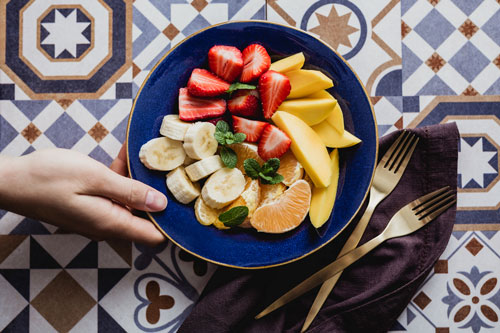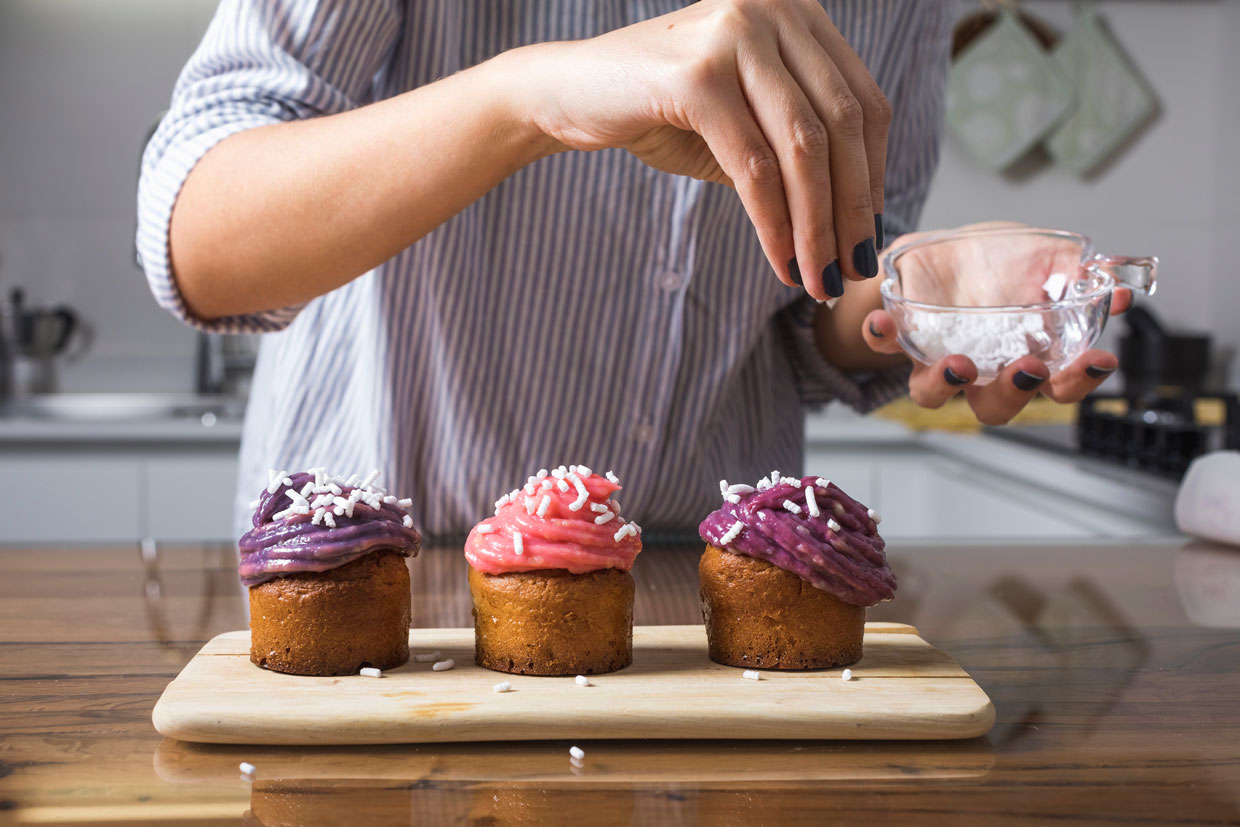The gut has long been an important component of our body and immune system but has only recently gotten the attention it deserves. There’s more research surrounding the concept of “gut health” than ever before, and this is because scientists are discovering all the connections between our gut health and other areas of our body, like our brain. And, let’s be honest, we’re mostly talking about it because TikTok has recently been obsessed with the idea of “gut healing.”
Our gut is a casual term for our gastrointestinal (GI) system, which is made up of important organs such as our esophagus, stomach, and small and large intestines. The gut is also home to your gut microbiome, explains functional nutritional therapy practitioner Tansy Rodgers, F.N.T.P., which houses trillions of microorganisms and genetic material in the intestinal tract. “The gut microbiome is involved in critical functions for health and wellness. Essentially, the gut acts as a barrier and protects the inside of the body from the outside world,” she says.
Maintaining a healthy gut is essential to the proper functioning of your entire body. “Not only does the gut break down the food that we eat, allowing our body to absorb the appropriate nutrients we need to survive, but it also contains numerous immune cells that help our body fight off infection,” explains Andrew Moore, M.D., a gastroenterologist in Chicago. “An unhealthy gut, or a lack of diversity in the gut microbiome, has been associated with numerous diseases including obesity, diabetes, cardiovascular disease, and inflammatory bowel disease.”
If you’re looking to maintain overall health, a good place to start is with your gut. Here, medical experts share the everyday mistakes you want to avoid if you want to enhance your gut health.

Avoid: Living a high-stress life
Most of us have daily stressors that impact our lives, including pressures from work, family life, and social responsibilities. But the average stress level of an American has significantly increased in the last few years, according to the most recent Stress in America survey by the American Psychology Association — and one reason is due to the global pandemic. Three out of every five (60 percent) Americans claim that the level of uncertainty in our country, in general, is enough to cause them further stress, per the survey data.
Unfortunately, stress and anxiety can negatively affect the gut, just as an unhealthy gut can cause issues with mood, explains Dr. Moore. “If you’re feeling stressed or anxious, it is important to work with a healthcare professional to manage these symptoms as it may impact the health of your gut, often resulting in symptoms of bloating, abdominal pain, and changes in bowel habits,” he adds.
Avoid: Over-using antibiotics
Antibiotics can be lifesaving in certain situations, but they are often prescribed or taken when not needed. In fact, according to the Centers for Disease Control and Prevention (CDC), one in three antibiotic prescriptions are deemed unnecessary. Unfortunately, antibiotics wipe out the good bacteria in our gut, notes Benjamin Hyatt, M.D., a gastroenterologist at Middlesex Digestive Health and Endoscopy Center Gastro Health. So, it is essential to avoid them when they are not necessary. “When it is necessary to take an antibiotic, consider taking a probiotic to replace the good organisms in our gut or eat foods with naturally occurring probiotics like kefir, yogurt, and kimchi as well as prebiotics such as onion, chickpeas, lentils, and soybeans,” he says.
Avoid: A fiber deficiency
Fiber is an essential nutrient that helps clear out our digestive tract, removing toxins and unwanted material, notes Rodgers. It also helps create more good bacteria in the gut. Unfortunately, as many as 95 percent of American children and adults are not getting their fair share of fiber, according to research published in the American Journal of Lifestyle Medicine. “A diet low in fiber may be associated with pro-inflammatory changes within the microbiome whereas adequate fiber intake has been associated with increased microbiome diversity and lower diabetes and cardiovascular disease rates,” warns Dr. Moor. “Increase your fiber intake through grains, beans, fruits, and vegetables with every meal and take an over-the-counter fiber supplement.”

Avoid: Excess sugar
Sugar is a significant irritant and offender to the health of your gut, warns Rodgers. “When we eat many sugary foods, the bad bacteria feed off of it and then trigger an immune response, causing inflammation that can damage the gut lining,” she says. “There are proteins that help keep the junctures in our gut lining tight so that the good stuff can pass through and the harmful stuff (toxins, bacteria, etc.) cannot. However, sugar can prevent these proteins from doing their job, allowing the gut lining to become more permeable.”
In short, the more sugary foods you eat, the less healthy your gut may be. Suppose you have a craving for something sweet. In that case, she recommends opting for natural sweeteners such as maple syrup, raw honey, monk fruit, and fruit, as artificial sweeteners have been shown to cause disruptions in the gut microbiome. “Remember, sugar is sugar, and too much of a good thing can still have negative effects, so it’s best to limit your intake overall,” she says.
Avoid: Food intolerances
If you often feel bloated, gassy, have heartburn, or experience changes in your bowel movements, you may have a food intolerance that is affecting your gut, according to Dr. Moore. “Food intolerances are common, and one of the most common is a dairy intolerance and can directly impact your gut health,” he says. He recommends keeping a food diary so you can track your symptoms. There are also many at-home food sensitivity tests that you can do at home, like Everlywell and Food Intolerance Test. “This may reveal an association with a certain type of food, which will allow you to eliminate it from your diet,” he says. “It is also always advisable to speak to a healthcare professional if experiencing these symptoms.”
We only recommend products we have independently researched, tested, and loved. If you purchase a product found through our links, Sunday Edit may earn an affiliate commission.








